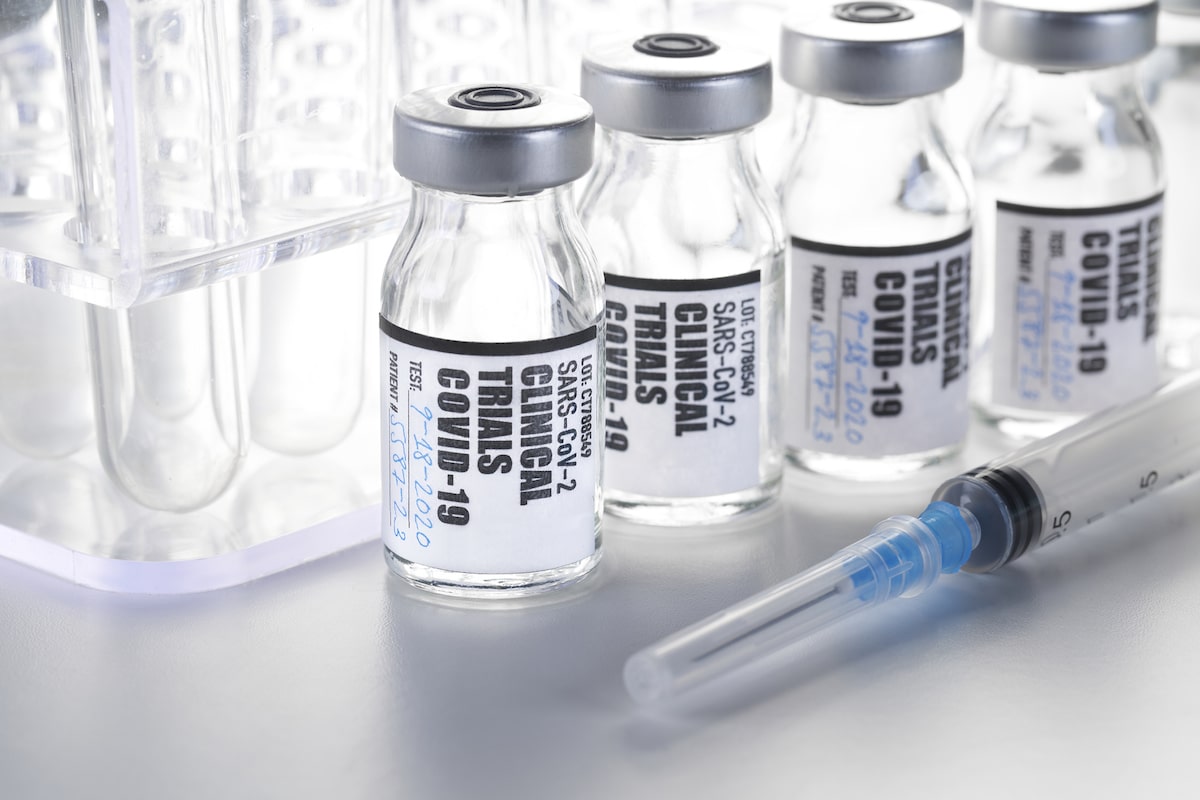<< Back
‘Miracle’ COVID-19 Vaccine Arriving in Hartford Within 2 Weeks

December 01, 2020
Hartford HealthCare Dr. James Pope, assessing at a Dec. 1 media briefing the safety of the soon-to-be-released COVID-19 vaccines amid public fears about an accelerated development process, said simply, “I would give it to my mother.”
Dr. Pope, medical director of the Hartford Hospital Intensive Care Unit, called the vaccines from Pfizer and Moderna currently seeking emergency use authorization from the Food and Drug Administration a cause for hope in a challenging time.
“It really is a miracle. There’s no other way to say it,” he said. “This is real hope.”
He and two colleagues – Dr. Patrick Troy, a Hartford Hospital pulmonologist, and Dr. Ajay Kumar, HHC’s chief clinical officer – said they would demonstrate faith in the vaccine by offering their own arms.
“I think the science is sound and I believe it’s safe. We will be the first people to take it – that’s our level of commitment,” Dr. Troy said, calling the vaccine “the medical equivalent of putting a man on the moon.”
Several factors helped shorten a development process that typically takes years, and he said understanding them should quell the public’s fear that the vaccine is unsafe.
First, he said, the pandemic necessitated quick vaccine distribution to save lives. Instead of waiting for trials to be over to start production, the pharmaceutical companies began making the vaccine earlier.
“It was at enormous risk but it’s one that paid off,” he said.
The Pfizer and Moderna vaccines have proved highly potent and almost 100 percent effective against serious cases of the virus in clinical trials.
“The effectiveness is almost too good to be true,” Dr. Troy said.
Secondly, scientists had a slight advantage working on this vaccine as it’s in the same family as SARS and MERS coronaviruses that cropped up over the past two decades. They also used new techniques, synthesizing the vaccine rapidly in the laboratory and training the body to react to it.
“This is a game-changer in terms of the technology used,” Dr. Troy said. “It is fundamentally different than any we’ve ever had.”
Unlike other vaccines, these contain no preservatives so the only way to keep them stable is at extremely cold temperatures, Dr. Pope said. The vaccine – given in two injections 21 days apart – contains only a messenger ribonucleic acid (mRNA) coated in lipid.
“It will use the machinery of our own bodies to produce the spike protein that’s on the surface of the COVID,” he said. “There’s a binding site within that spike protein and the vaccine produces immense amounts of antibodies against that binding site, blocking it so the virus cannot attach to our cells.”
Dr. Kumar said HHC expects shipment of the first batch of vaccine – which the Centers for Disease Control and Prevention recommends for healthcare workers, first-responders and nursing home residents – by Dec. 15. He estimated all Americans will have access to the vaccine by May or June 2021.
He added that there are no serious adverse effects to the vaccine, with less than two percent of those receiving it in the trials reporting mild symptoms like body aches and fever.